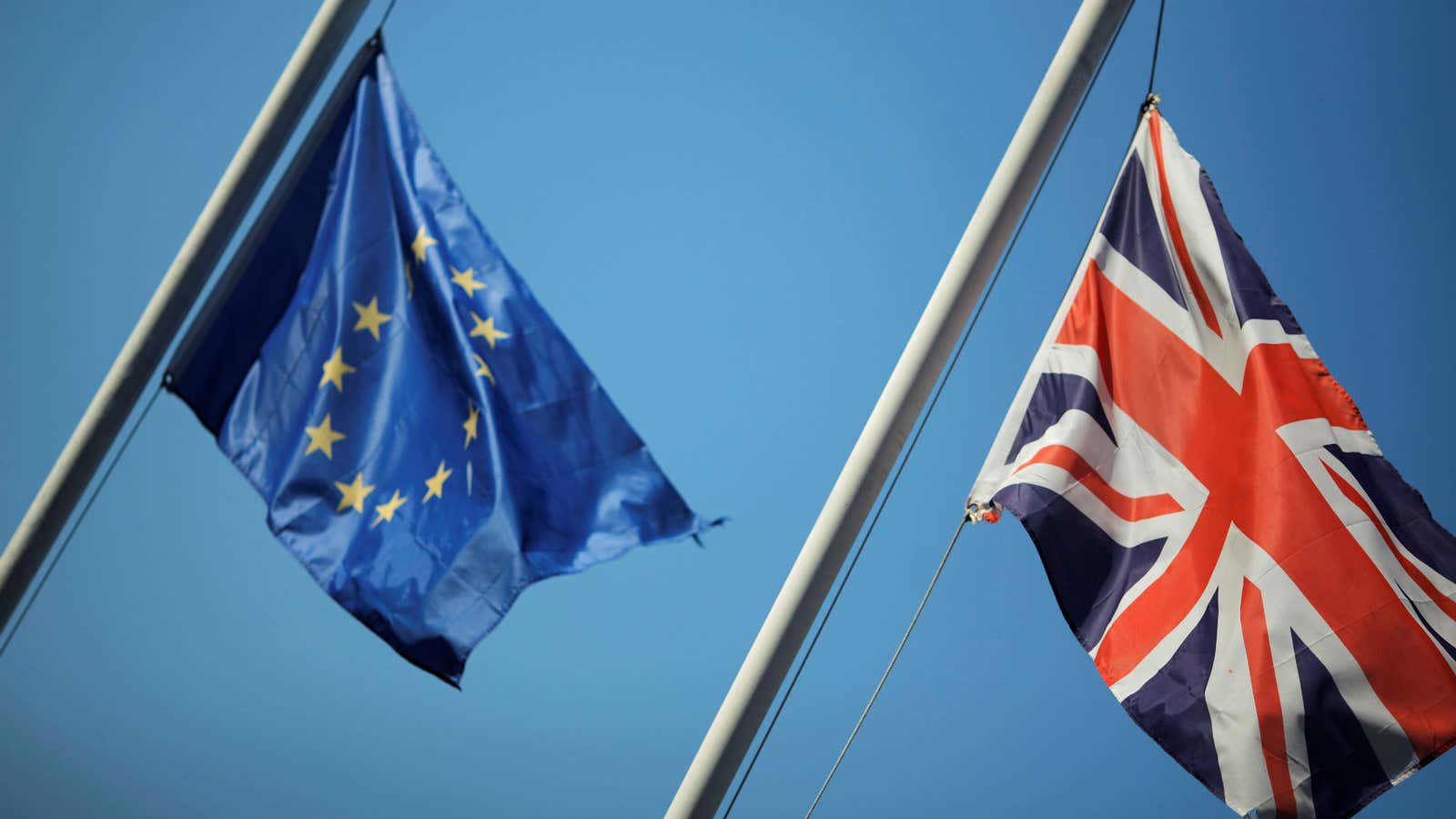In 2002 I was in graduate school when the first euro banknotes and coins began to circulate. My classmates and I were incredulous it was really happening. It seemed obvious that these 12 countries didn’t form an optimal currency zone, lacking the institutions needed to make shared money work.
“This is cannot go well, why are they doing this?” we’d ask. My Italian macroeconomics professor shrugged and said something like, “the justification is entirely political, not economic—it happens that way sometimes.” The room of young, idealistic economists groaned.
The professor’s argument sums much of the history of the European Union, and why the UK’s referendum tomorrow (June 23) on whether to stay in the bloc is so fraught. Britain has stuck to the shrewd decision to keep its own currency while staying in the EU. Because of this, it gets the best of both worlds: access to a large free-trade zone in Europe but control over its own monetary policy.
Leaving the EU’s common market—in which goods, capital, and labor flow freely across borders—is akin to “economic suicide,” according to many sensible, serious people. A British exit, or “Brexit,” is at best a risky choice with limited economic upside. But so are a lot of things to do with the EU.
The concept of a common European market is a good one, but its execution has been terrible. The EU as it is features many inept technocrats with limited accountability to electorates out in member states. There’s an inherent tension between countries giving up sovereignty (which many European citizens are deeply ambivalent about) and the closer integration necessary to make the project, as it was conceived, a success.
No matter: the bureaucrats have pushed on, centralizing power and making mistakes (the euro, the handling of the Greek debt crisis, and so on). These decisions left the continent weaker and southern economies in near depression. It’s down to bad leadership that debt crises rumble on, and the reforms needed to build build the foundations for euro-wide growth are ignored. Even if the UK isn’t in the euro, you can’t fault the instinct to look across the water and recoil, seeking as much sovereignty as possible by pulling out of the project that spawned such a mess.
Wiser heads may prevail. Polls are inconclusive but bookies put the odds of Brexit at just 25%. But they also put an 18% chance on the euro currency ceasing to exist by 2020. These low but non-trivial probabilities show how fragile faith is in pan-European institutions.
It’s hard to make compelling economic case for Brexit. But then again, the history of the EU is littered with terrible economic decisions made in the name of lofty political aspirations. Are Europeans worse off for it? Some are, and Brits will probably be too if they vote for Brexit, at least in the short term. EU policymakers often put politics before economics—so can British voters.
